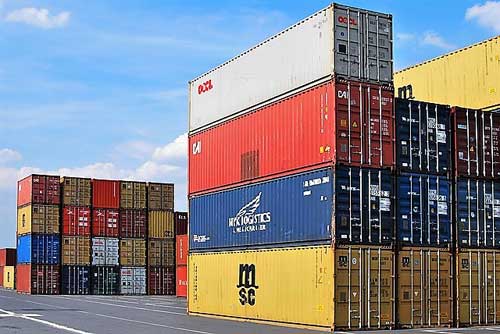
Do you know if your imported goods contain Asbestos?
Important notice
Do you know if your imported goods contain Asbestos?
Do you know if your suppliers know if the goods being supplied contain asbestos?
Customs now want you (the importer) to show a documentary trail for all of your imports that demonstrates that you have taken all steps to ensure that you know that the goods being imported do not contain asbestos.
The Government and the Department of Immigration and Border Protection (DIBP) have recently reviewed to process of importing goods that may contain asbestos. In doing this, the DIBP now have placed the onus of knowing if imported goods contain asbestos or not squarely on the importer and in turn made it the responsibility of Brokers to be able to declare on behalf of the importer if the goods may contain asbestos or not. This is not just a simple question to be asked up the supply chain that may be met with a simple “No asbestos” from the supplier. DIBP now need all importers to be able to demonstrate a full documentation trail of how this question was asked up the supply chain and records kept for all products being imported.
Due to safety concerns and the volatility of asbestos, the DIBP have taken this declaration mechanism to a new level. The DIBP now insist that all importers of all goods that may contain asbestos and goods that may contain components that may themselves have traces of asbestos now need to be notified at time of import. Furthermore, DIBP have asked that if the due diligence explained in the previous paragraph has not been met, the DIBP has made it the legal obligation of all brokers to declare that the goods may contain asbestos at the time of entry. This will in turn allow the DIBP to make its own assessment on whether to examine and / or test the goods prior to release from customs.
Whilst there is no specific document or template that DIBP have approved as acceptable when dealing with this complex matter, the below provides some guidance on what may assist in the assessment of due diligence being performed. Please only use this as a guide as different goods may require a different approach to collating all the information throughout the supply chain used in the making of your goods.
See Example Statement Attached
It is important to note the focus from DIBP is that the importer can demonstrate due diligence in ensuring that asbestos is not used in the manufacture or production in the items being imported.
If DIBP do not have sufficient documentary evidence demonstrating the due diligence has been taken by the importer to ensure that there is no asbestos present in any of the items being imported, your consignment could be held and/or tested resulting in extra charges which would need to be passed on.
To read more on your obligations as an importer regarding asbestos please refer to the web links below. In particular the extract titled “Ensuring the goods do not contain asbestos” also below.
https://www.border.gov.au/Busi/Impo/Proh/Asbestos#goodsthatmightcontainasbestos
http://www.border.gov.au/Importingandbuyinggoodsfromoverseas/Documents/asbestos-border-factsheet.pdf
Ensuring the goods do not contain asbestos
It is the responsibility of importers and exporters to ensure they do not import or export prohibited goods such as asbestos. We must be assured that no asbestos is present at the time of import or export.
There are factors that increase the risk of importing asbestos or Asbestos Containing Material (ACM). Definitive enquiries should be made with suppliers outside Australia about any use of asbestos at the point of manufacture, prior to importing the goods into Australia.
To ensure that goods do not contain asbestos, commercial importers are encouraged to investigate, and where appropriate implement:
- contractual obligations with their suppliers that specify nil asbestos content
- sampling and testing for asbestos content prior to shipping the goods to Australia
- regular risk assessment and quality assurance processes, that take into account:
- what raw materials are used in the manufacture of the goods
- where manufacturers outside Australia source their raw materials
- Identifying and subsequently minimising asbestos-risk activities at the point of manufacture.
If Australian importers can demonstrate their own supply chain assurance programme they could avoid delays to the clearance of their goods at the point of importation.
If we suspect that goods arriving at the border contain asbestos, the goods are detained and examined. Documentation that provides sufficient assurance must be provided. The importer could be required to arrange sampling, testing and certification by a ‘competent person’ to ensure there is no presence of asbestos. The arrangement and cost of any independent inspection, testing and storage of the goods is the responsibility of the importer/exporter in Australia in accordance with section 186 of the Customs Act 1901 (the Act).
If you have any questions regarding this new requirement please do not hesitate to contact DEAN World Cargo
Tony Morcos
Customs Manager
PH: 03 92794400
MOB: 0412 038 371
asbestos-statement

0 comments